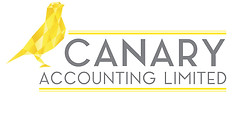Understanding the ‘High Income Child Benefit Charge’
- Ruth Chettle

- Oct 7, 2020
- 3 min read

When you have a child you are entitled to claim a weekly ‘Child Benefit’ amount for each child which is paid every 4 weeks.
On 7th January 2013 HMRC introduced the ‘High Income Child Benefit Charge’ for households where one individual earns over £50,000.
In recent months HMRC have been contacting individuals who are subject to the ‘High Income Child Benefit Charge’ and have not submitted Self Assessment Tax Returns. This may be because they were not aware of the rules or their income has recently gone over the £50,000 threshold. Depending on income levels this could mean having to repay a number of years worth of child benefit.
So I thought it may be useful to explain it in a little more detail…
What is the ‘High Income Child Benefit Charge’?
If you (or your partner) have an income of £50,000 or more a year and your household is receiving child benefit, the person with the 'high income' may have to pay a tax charge – a sliding amount known as the 'high income child benefit charge'.
How much is the ‘High Income Child Benefit Charge’?
For every £100 you receive above £50,000, you'll pay back 1% of the maximum amount of child benefit you're entitled to.
So if you get £55,000, you'll pay back 50%.
Once you have £60,000 or more coming in, the charge you'll pay back is 100% of your entitlement, essentially meaning you won't get any benefit.
What do I need to do if I earn over £50,000 and receive child benefit?
If this applies to you then the person earning the most needs to be completing a tax return each year in order to pay HMRC the charge.
This applies to me but I haven’t completed any Self Assessment Tax Returns – what should I do?
Contact HMRC and notify them – it always looks better than if they notify you.
You will then need to prepare Self Assessment Tax Returns for each of the tax years the ‘High Income Child Benefit Charge’ applies and pay the child benefit charge back to HMRC.
Depending on the amount you may be able to pay this through your tax code or by arranging a payment plan with HMRC.
Me or my partner earn over £50,000 is it still worth us claiming child benefit?
It is worth considering the following points:
If you earn between £50,000 to £59,999 it is still worth receiving child benefit as you will still get a % of the child benefit income.
The higher earner could reduce the charge by making personal pension contributions as this reduces your adjusted income which the calculation is based on.
If you earn over £60,000 you will be receiving no benefit so you could choose to stop receiving child benefit (and remove the need to prepare a tax return each year). However, if one spouse is a stay at home parent it is important to still fill out the child benefit form in their name as then they will get their national insurance credits for their state pension entitlement even if you choose not to receive the payments. HMRC estimates that around 200,000 parents are losing out in this way because the partner with a higher income, not them, is registered for child benefit.
If any of this applies to you and you would like to discuss it in more detail please feel free to contact me.




Comments